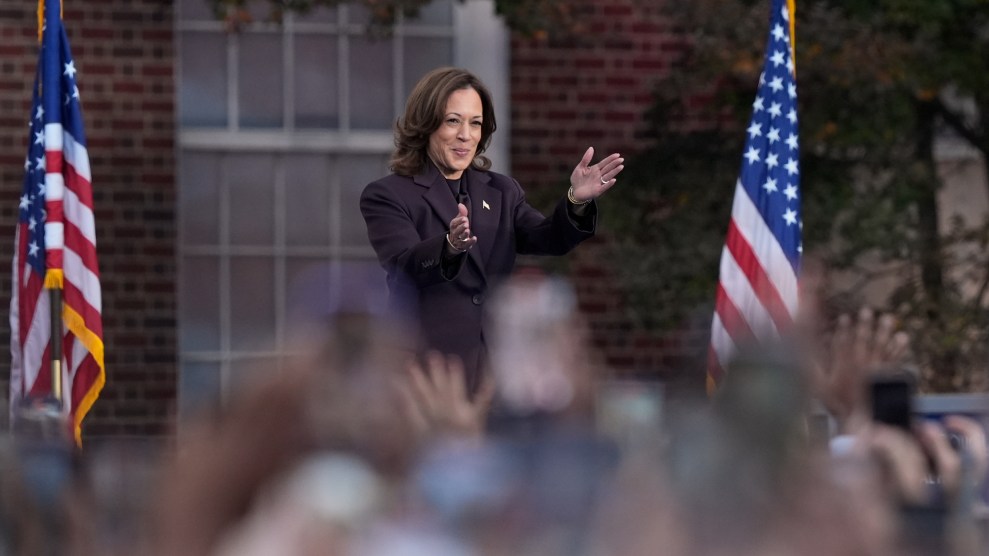
Ed Zurga/AP
Reproductive rights organizers in two states with near-total abortion bans, Missouri and South Dakota, submitted roughly double the signatures needed to allow ballot measures that would put abortion before voters.
In South Dakota, organizers have submitted 55,000 signatures in support of the ballot measure granting a limited right to abortion—far more than the 35,000 required. In Missouri, organizers turned in 380,159 signatures, compared to the required 172,000, in support of a measure enshrining the “the right to reproductive freedom.” Missouri’s language is similar to ballot measures that passed in Ohio and Michigan.
Since the Supreme Court overturned Roe v. Wade two years ago, abortion rights advocates have won in seven out of seven abortion-related ballot measures. Groups in nearly a dozen states are have secured abortion amendments on the ballot this fall or are pushing to do so. Democrats are counting on these ballot measures to buoy their chances, especially in competitive states like Florida and Arizona.
In both Missouri and South Dakota, Republican policymakers are trying to stop the measures from succeeding.
In March, South Dakota Gov. Kristi Noem (who made headlines this week for her forthcoming book with false and sensational claims) signed legislation that allows signers of ballot measures to revoke their signatures. As my colleague Madison Pauly reported, “The bill is transparently targeting the abortion-rights initiative. Its main sponsor, Republican Rep. Jon Hansen—who sits on the board of directors for South Dakota Right to Life—claimed to South Dakota Searchlight that people had been ‘misled, or frankly, fraudulently induced,’ into signing Dakotans for Health’s abortion rights petition.”
In Missouri, legislators are pushing a ballot measure that would make it harder for future ballot measures to succeed. To prevail, future ballot questions would require not just the support of the majority of voters, but the backing of the majority of voters in five out of eight congressional districts. As the New York Times recently noted, “Abortion rights supporters fear the requirement would allow a minority in rural areas that tend to oppose abortion rights to vote down the amendment.”
















